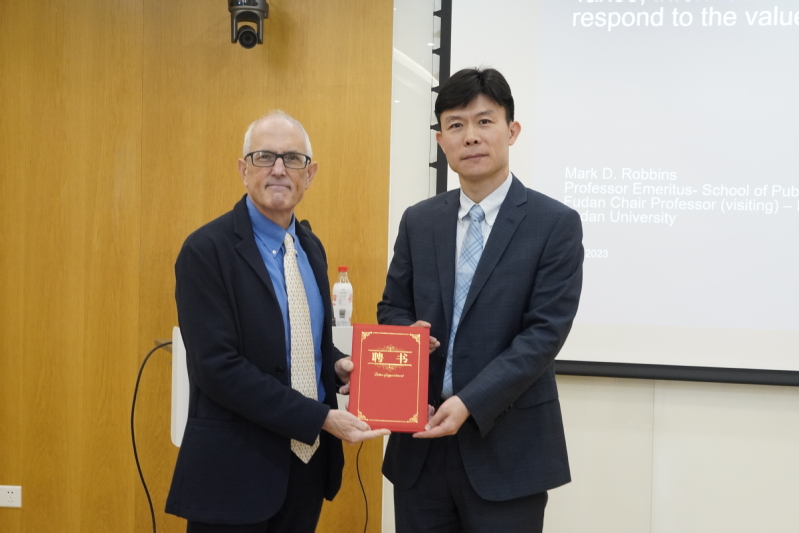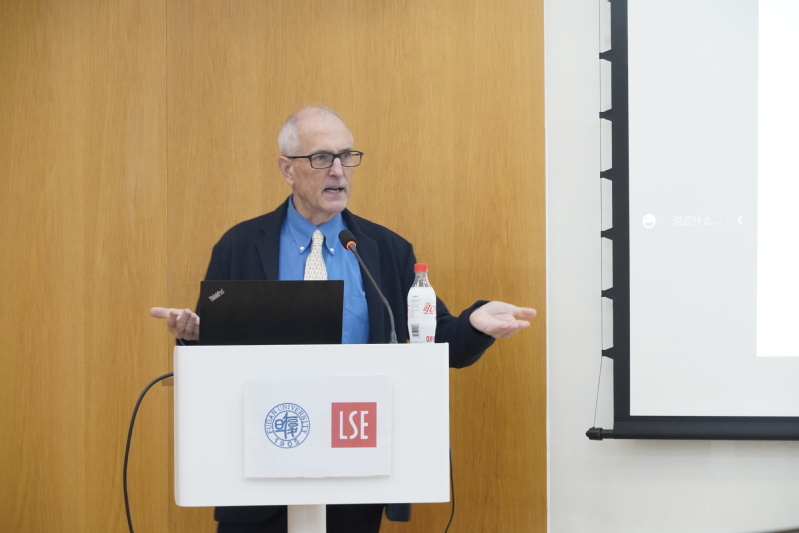Events



On April 27, 2023, the 42nd lecture of the Fudan-LSE Lecture Series was held in the conference room on the 8th floor of the West Sub-Building of Guanghua Towers. Professor Mark D. Robbins from the University of Connecticut gave a lecture on Taxes, Information, and Trust: How Citizens Respond to the Value of Governments. The lecture was hosted by Professor Yijia Jing, Dean of the Institute for Global Public Policy, Fudan University. Associate Professor Yu Shi from the Department of Public Administration, University of North Texas served as the discussant.
At the beginning of the lecture, Professor Jing gave a brief introduction of Professor Robbins. He is Emeritus Professor in Public Policy at the University of Connecticut and Visiting Professor at Fudan University. He conducts research in the area of public budgeting and finance with a focus on public preferences for taxation and spending and on public debt. He has also served as a technical adviser to the Government Finance Officers Association Debt Committee, a peer reviewer and accreditor for the National Association of Schools of Public Affairs and Administration, and a member of the Governmental Accounting Standards Board's Advisory Council, responsible for budgeting and financial management.

Professor Robbins first introduced one of his ongoing research topics – citizens’ tax preferences and the influencing factors. He reviewed the extant research and further explored the effect of non-traditional factors on citizens’ tax preferences using a variety of innovative approaches. Through an analysis of a web-based willingness-to-pay survey, Professor Robbins finds that government disclosure of real budget constraints can be a useful solution to citizens’ low willingness to pay taxes.

Professor Robbins further pointed out that citizens' perception and understanding of government taxation and financial expenditure information are related to government efficiency and citizens' trust in government. Taking the example of citizens' reactions to policy descriptions in school bond referendums in Minnesota and Wisconsin, Professor Robbins explained the “wording effects” of taxation information on citizens' voting preferences, i.e., different expressions of tax policies can affect citizens' willingness to pay. Additionally, racial factors can also affect citizens' perceptions of government efficiency and willingness to pay taxes.
After Professor Robbins' speech, Associate Professor Shi Yu provided comments. Shi Yu believed that the wording effect proposed by Professor Robbins has important implications for public finance and public management. Based on the case study of school bond referendums, Shi Yu and Professor Robbins further discussed research design, theoretical foundations, and policy implications.

Afterwards, Professor Robbins exchanged ideas with the audience on topics such as the wording effect of policies, the dual role of local governments, and the feasibility of application in the Chinese context. The lecture ended successfully with warm applause from the audience.